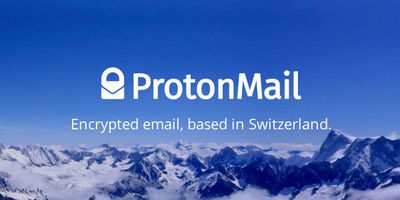Encrypted email provider ProtonMail has launched its own onion address, allowing users to access the service over the Tor anonymizing network (via TechCrunch).
The Swiss-based email account provider, which has more than 2 million users, said the measure was aimed at defending against state-sponsored censorship, and pointed to recent moves around the world to block encrypted communications and expand surveillance.

ProtonMail said it was worried about increased attacks on online privacy, such as encryption messaging app Signal being blocked in Egypt, and the UK passing expansive surveillance legislation which mandates tracking of web activity.
The service also reported a bump in registrations following President-Elect Donald Trump's election win, with web users said to be seeking a non-U.S. based secure email provider in case of a broad expansion of online surveillance activity.
"Given ProtonMail's recent growth, we realize that the censorship of ProtonMail in certain countries is inevitable and we are proactively working to prevent this," said co-founder Andy Yen in a statement on the launch. "Tor provides a way to circumvent certain Internet blocks so improving our compatibility with Tor is a natural first step."
ProtonMail can now be reached over the Tor network directly using the onion address https://protonirockerxow.onion. The provider has also posted instructions on how to access the site on iOS devices, although it is currently looking into problems with access via the free Onion Browser app.
ProtonMail is a free download for iPad and iPhone on the App Store. [Direct Link]
Note: Due to the political nature of the discussion regarding this topic, the discussion thread is located in our Politics, Religion, Social Issues forum. All forum members and site visitors are welcome to read and follow the thread, but posting is limited to forum members with at least 100 posts.
























Top Rated Comments
Oh and with reasonable storage subscriptions.
[doublepost=1484830466][/doublepost]Such systems are also valued by researchers, lawyers, dissidents and people that generally value their privacy and or want to protect against espionage.